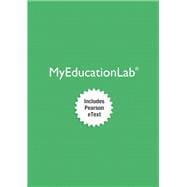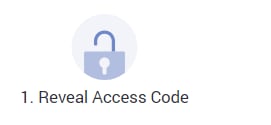NOTE: Before purchasing, check with your instructor to ensure you select the correct ISBN. Several versions of Pearson's MyLab & Mastering products exist for each title, and registrations are not transferable. To register for and use Pearson's MyLab & Mastering products, you may also need a Course ID, which your instructor will provide.
Used books, rentals, and purchases made outside of Pearson
If purchasing or renting from companies other than Pearson, the access codes for Pearson's MyLab & Mastering products may not be included, may be incorrect, or may be previously redeemed. Check with the seller before completing your purchase.
This access code card provides access to MyEducationLab® with Pearson eText.
Concise and lucid writing made this book in its first edition the leading research methods text written specifically for counselors.
The text introduces reader to the basics of how to do research—from formulating a problem, doing a literature review, selecting a design, collecting and analyzing data, through reporting results. It also provides readers with the information they need to become intelligent consumers of published research. Covering a broad range of quantitative, qualitative, and mixed methods designs, as well as action research and program evaluation, the text presents the most common types of research used in the field of counseling.
From reviews of the text:
“The content is strong and clearly explained. . . . This is the best [counseling research text] I have seen.”
—Monica Osburn, UNC-Pembroke and Webster
“The majority of my students report it is easy to follow and understand, even those with limited research knowledge. . . . So often I find counseling students viewing research methods courses as courses they must just ‘get through’ and not ones that will help them in their future careers. This book . . . does help students understand how this knowledge can benefit them in their future practice.
—Ryan Melton, Portland State University
“The book is very clear and concise, and it is an easy text for the students to understand. The many examples used throughout the text and sample paper are great resources for the students. . . . It is relevant to counseling students, it has information required by CACREP, and it is a comprehensive research textbook that is easy for students to follow. The examples given are superb . . . .”
—Lakitta D. Johnson, Jackson State University
Personalize learning with MyEducationLab®
MyEducationLab® is an online homework, tutorial, and assessment program designed to work with the text to engage students and improve results. Within its structured environment, students can practice what they learn, test their understanding, and receive feedback to guide their learning and ensure they master key learning outcomes.












